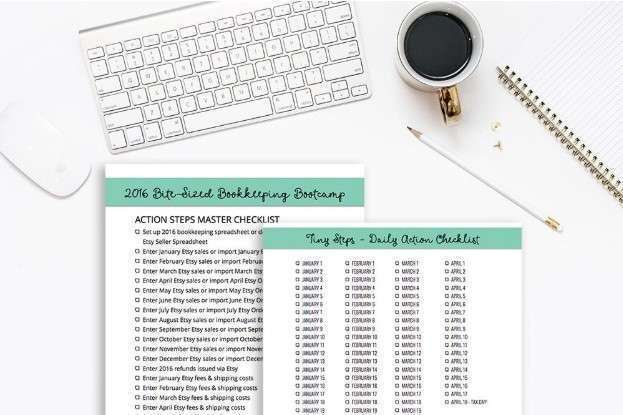
Whena business transfers their bookkeeping records from one accounting softwareprogram to another they are ‘converting’ their books. What they do is take theclosing balances from the old software and enter them into the new software asopening balances. Hal also points to OPS (other people’s skills) as a reason to get bookkeeping help sooner than later. The business owner is an expert in their business, and a good bookkeeper is an expert in processes and accounting.
When should a small business hire a professional accountant?
The information provided on this website does not, and is not intended to, constitute legal, tax or accounting advice or recommendations. All information prepared on this site is for informational purposes only, and should not be relied on for legal, tax or accounting advice. You should consult your own legal, tax or accounting advisors before engaging in any transaction.
- Getting certified can improve your chances of landing an accounting role and advancing your career.
- Debra says that she usually sees this need arise around the six-month point.
- Bookkeepers focus on the accurate recording of transactions, while accountants analyze and interpret that data.
- Income tax is also usually deducted from the total so the employee receives a net payment.
- Bookkeeping refers to the financial tracking of daily financial transactions of a business.
- These processes help the business assess its worth and make future decisions.
- Understanding the difference between accounting and bookkeeping is crucial for entrepreneurs, small business owners, and anyone managing a company’s finances.
Can a bookkeeper be considered an accountant?
An adjusting journal entry is an entry that occurs in the company’s general ledger at the end of an accounting period to account for unrecognized income or expenses for that period. For example, adjusting entries are used to account for transactions that started in one accounting period and ended in a later period or that corrects a mistake from a previous accounting period. The roles of bookkeepers and accountants are constantly evolving – especially in the digital age. Accounting and bookkeeping technology is automating many of the tasks that used to take up an accountant or bookkeeper’s time.
What is Bookkeeping and Accounting?

Accurate assets = liabilities + equity financial records are crucial for making informed business decisions, and bookkeeping helps achieve this by providing a clear picture of a company’s financial situation. Technology has also forced both accountants and bookkeepers to be more tech-savvy and adaptable. To better serve clients and employers, they must be familiar with popular bookkeeping and accounting platforms and applications—able to adjust to new demands and responsibilities seamlessly.
- You may face challenges with financial reporting, tax rules, and compliance requirements.
- A number or combination of numbers or letters that are used to identify each transaction within the cash book following through to the journals and ledgers.
- Accountants use financial statements, such as balance sheets and income statements, to present financial information in a clear and concise manner.
- Through this article, you will understand the clear differences between bookkeeping and accounting, and can also explore the bookkeeper vs accountant difference to understand how both are unique.
As you can tell from reading the above job descriptions for bookkeepers and accountants, there is a bit of overlap between bookkeeping and accounting. Hiring an accountant to help with tax planning and preparation can sometimes pay for itself if the accountant helps the business claim valuable tax deductions or credits. Likewise, an accountant who can recommend cost-saving or revenue-boosting strategies that help the business grow may bring a lot more value to the company than the business spends on the accountant’s fees. Accountants tend to serve as a type of financial advisor for a business or individual, and most savvy business owners turn to an accountant for advice before making major financial decisions. A business can keep cash in a safe place for the purpose of making small purchases like milk, stamps, pens etc.
- The process of sorting and entering financial data into a bookkeeping system.
- While bookkeeping and accounting serve distinct functions, they are both vital to the financial health and success of any business.
- Banks or loan companies usually require these so they can see how the business is doing before approving a loan to the company – they want to be sure the business has the means to pay back a loan.
- The bookkeeper also matches the transactions in their accounting system to what comes in through the bank feed.
- The method of bookkeeping in which all financial transactions are entered twice – once as a debit and once as a credit.
- These notes are completed by the business by entering the date, the name of the person/business being paid and the amount in numeric value and word value.
For those looking to climb higher, becoming a Certified Public Accountant (CPA) is a common goal. CPAs are recognized for their expertise in accounting principles and practices, making them highly sought after in various sectors of the terms accounting and bookkeeping are interchangeable. the business world. A bookkeeper can efficiently manage transactions, pay bills, and keep your financial records in order. Additionally, integrating a tool like Expensify can automate expense reporting and tracking — reducing the workload for everyone involved. They perform consistent, routine calculations, often using preaccounting software, to ensure transaction histories are accurate and ready for analysis, but they don’t do the analyzing themselves. Bookkeeping records daily transactions, while accounting analyzes those records to support business decisions.
A transaction that repeats regularly every week or month for the same amount to the same place is said to be a repeating or recurring transaction. One example is the Sales Forecasting gross profit margin which is based on sales divided by gross profit and the result turned into a percentage. Businesses can chose what margins they should have to be able to earn a profit and based on those margins decide what prices to sell their products to make this happen. The losses occur when the business has to pay more to the supplier than the original conversion. The date at which it is entered will have a different exchange rate to the date when it is paid because exchange rates fluctuate on a daily basis. The sectionof a financial transaction that describes the item or service purchased orsold.

According to Thumbtack, depending on the type of work you need done, accountants can cost up to $300 per hour, compared to an average rate of $40 per hour for a bookkeeper. For many businesses, especially those without the resources to hire in-house accounting and bookkeeping teams, outsourcing these services can be a highly efficient solution. Companies like Swivel Finance offer a full suite of accountancy and bookkeeping services, providing business owners with the expertise and support they need to manage their finances effectively.
Accounts payable
Bookkeeping is the foundation of any business’s financial management, and it’s essential to understand its role. Bookkeeping involves recording and maintaining a company’s financial transactions, such as income and expenses, in a systematic and organized manner. Bookkeepers and accountants may work part- or full-time for a company or in an outsourced capacity. Small businesses may not need a full-time bookkeeper or accountant and can save money by outsourcing these tasks on a part-time or as-needed basis. Outsourced bookkeepers and accountants may charge by the hour for their services or a flat monthly rate.
Leave a Reply